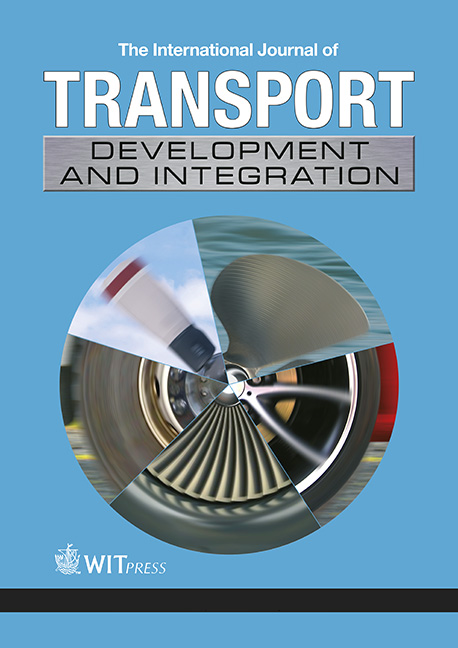Predicting traffic accidents and their injury severities using machine learning techniques
Price
Free (open access)
Volume
Volume 6 (2022), Issue 4
Pages
14
Page Range
363 - 377
Paper DOI
10.2495/TDI-V6-N4-363-377
Copyright
WIT Press
Author(s)
H. L. Gururaj, V. Janhavi, U. Tanuja, Fransesco Flamini, B. C. Soundarya, Vinayakumar Ravi
Abstract
Traffic accidents are among the most censorious issues confronting the world as they cause numerous deaths, wounds and fatalities just as monetary misfortunes consistently. According to the world health organization (WHO) reports, 5,18,3626 accidents took place in India in the year 2019. Factors that contribute to these road crashes/ traffic accidents and resulting injuries include inattentive drivers, unenforced traffic laws, poor road infrastructure, driving in bad weather conditions and others. This investigation effort establishes models to select a set of influential factors and to build up a model for classifying the severity of injuries. Machine learning models can be applied to model and predict the severity of injury that occurs during road accidents. one such way is to apply unsupervised learning models such as Apriori, Apriori TID (transaction id), SFIT (set operation for frequent itemset using transaction database) and ECLAT (equivalence class clustering and bottom-up lattice traversal) which analyze the unlabeled traffic accidents dataset and determine the relationship between traffic accidents and injury. This research work is helpful for traffic departments to decrease the number of accidents and to distinguish the injury’s seriousness extensive simulations were carried out to demonstrate the un-supervised learning algorithms for predicting the injury severity of traffic accidents. Apriori algorithm predicts the patterns in 962 milliseconds, Apriori TID (transaction id) algorithm predicts the pattern in 557 milliseconds, SFIT algorithm predicts the pattern in 516 milliseconds and ECLAT algorithm predicts the pattern in 124 milliseconds. ECLAT algorithm took less time compared to all the other algorithms.
Keywords
Apriori, ECLAT, machine learning, traffic accidents




